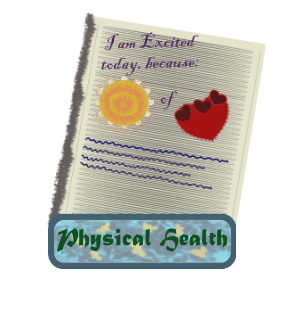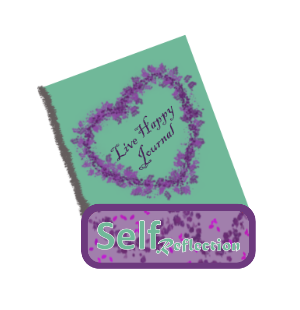Something is refreshing about an empty page, a pencil in hand, as thoughts from your brain become words in front of you. Writing things down, whether done in the comfort of your room or even sitting on a bench at your local park, is an essential first step toward self-care. In this article, we will discuss how journaling contributes to self-care and how to get started.
Why Does Self-care Matter?
It is natural to feel worried and overwhelmed, whether because of school, work, or life in general. In fact, you’re not alone. According to an article by Moira Lawler, Google Trends show that “searches for ‘self-care’ have more than doubled since 2015” (Lawler, 2021). In the fast-moving pace of the modern world, it seems impossible for anyone to get time to relax. With tasks and work piling up and social relationships to maintain, our emotional health often gets pushed aside.
But despite all our everyday responsibilities, mental health matters. Taking care of our mental health is intertwined with almost every aspect of life, directly relating to physical health, daily interactions, and the ability to handle stress. For one, it allows us to maintain our energy levels, thus positively influencing how we connect with loved ones, classmates, and everyone around us. These meaningful interactions help us enhance our ability to cope with the pressures of daily life and find our purpose. Because of this, it is necessary to set off a time for ourselves in the day to destress and clear our minds. Luckily, this is where keeping a journal comes in handy.
Getting Started
 Self-Care Journal: Definition, Uses, and Benefits
Self-Care Journal: Definition, Uses, and Benefits
A journal, notably one for self-care, is a place to write thoughts, emotions, and experiences in a way that is favorable for a person. This type of journaling can be anything that makes you feel good about yourself. Self-care requires checking in and ensuring the best for your mind and body. With this in mind, here are a few benefits of self-care journaling.
Improved Physical Health
Expressive writing is the journaling style that has proven to be the most beneficial to your health (Halo, 2021). Recent studies found significant benefits for individuals with medical problems including reduced blood pressure, immune system functioning, and even reduced healing time (Halo, 2021).
The focus of these entries is on emotions, allowing you to reflect on unpleasant events in your life. Remember that the first step to self-care is making you stay healthy!
Maintaining Emotional Health
One of the most common uses of journaling is preserving a positive outlook on life. Your personal journal can be a safe space to vent feelings, cope with recent losses, reflect on the day, and express gratitude. By being aware, these actions serve as effective ways to calm your mind.
Improved Academic Performance
Journaling is also proven to go beyond health, positively affecting the ability of students to retain information. Angela D. Stanton and Wilbur W. Stanton conducted a study on the effects on learning and critical thinking, presenting a significant increase in understanding of concepts by those that developed learning journals (Stanton, 2017).This method included reflecting on what they learned and relating it to real-world applications and life experiences.
Why does this work? Well, writing down your ideas forces you to organize your thoughts. The findings from the study suggest that connecting your ideas helps you gain a better grasp of the world around you. For students especially, writing helps those wanting to practice essential skills needed in the future. As kids transition from K-12 and continue through college and career life, the importance of writing skills is stressed as you get older. Journaling can improve your ability to discover your writing style, enhancing your voice and vocabulary.

What To Write
 What do you write in a journal? This is a common question that every journalist encounters at some time. Is it to sort out thoughts? Document an emotional journey? Record memories? While some use journaling to maintain their daily activities, others use it to deal with prominent issues in their life. There are no strict guidelines you have to follow when keeping a journal. After all, everyone has a different background and interests. The answer is that it can be all, some, or none of the above. It is all up to you! If you are a little lost, here are two great methods to get started.
What do you write in a journal? This is a common question that every journalist encounters at some time. Is it to sort out thoughts? Document an emotional journey? Record memories? While some use journaling to maintain their daily activities, others use it to deal with prominent issues in their life. There are no strict guidelines you have to follow when keeping a journal. After all, everyone has a different background and interests. The answer is that it can be all, some, or none of the above. It is all up to you! If you are a little lost, here are two great methods to get started.
Bullet Journaling
Are you on the creative side? In describing bullet journaling, Thomann refers to Ryder Carroll, the creator of this method, “who expressed that ‘bullet journaling is best described as a mindfulness practice disguised as a productivity system’” (Thomann, 2020). Unlike a pre-designed diary or planner, a bullet journal allows you to be more creative and adjust it to your goals and thoughts. While staying organized, you are able to take note of different aspects of your life. Not only that, but it can be lots of fun too! Many like to use colorful pens to doodle and make each page unique. You can practice mindfulness while making layouts, and who knows, you might wind up with your own art portfolio.
Familiar pages that deal with self-care are:
- Sleep, mood, and habit trackers
- Inspirational quotes
- Family memories and milestones
- Affirmations
- Brainstorming goals and vision boards
- Morning and Night routines
Writing From A Prompt
 Sometimes a blank page may seem daunting. Do you not know where to start? Having a structure for journaling may be more fitting if this is you. When stuck on ideas to write, journaling prompts are a great way to help you start thinking! Many questions are written in a way to help you reach a great depth of self-understanding. These topics touch on many areas, and all you have to do is find something you are passionate about and start writing.
Sometimes a blank page may seem daunting. Do you not know where to start? Having a structure for journaling may be more fitting if this is you. When stuck on ideas to write, journaling prompts are a great way to help you start thinking! Many questions are written in a way to help you reach a great depth of self-understanding. These topics touch on many areas, and all you have to do is find something you are passionate about and start writing.
That said, here are a few journaling prompts to get you started.
Some prompts include:
- I am grateful for…
- In twenty years, my dream is…
- Something I will never regret is…
- When I look out the window…
- I sometimes still feel angry when I think of…
Final Thoughts
Journaling is something you do for yourself. Writing in itself is its own reward, and many writers discover that it is much more than simply a record of the day. Journaling is a great way to get to know yourself and how you think. Many people also use it for personal growth. It is a chance to get your creative juices flowing and a sure way to take control of your life. It is a source of motivation to continue or change the way you are currently living, and it is a document of your growth over the weeks and a unique record of your thoughts as you live it.
With homework for students and long hours at work for adults, it is common to find it hard to take time for ourselves. Stress has no age limit, and everyone must plan their self-care time. What better and easier way is it than with a pencil and paper? Journaling is one of the most effective self-care methods, reaping benefits for physical, mental, emotional, and intellectual wellbeing. It’s entirely up to you how you go about it, and everything is open to interpretation.
In the end, taking a few moments alone might help you consider the best ways to improve yourself, allowing your self-esteem and happiness to flourish. After all, journaling is more than just a hobby; it’s a way of life.
Consider reading another journaling-related article on our blog Grateful for gratitude? – iN Education Inc. (ineducationonline.org)
References:
- Lawler, Moira. “What Is Self-Care and Why Is It Critical for Your Health?” EverydayHealth.com, May 19, 2021. https://www.everydayhealth.com/self-care/
- “The Physical Health Benefits of Journaling.” Halo, 2021. https://halo.app/articles/journaling-101/the-physical-health-benefits-of-journaling
- Stanton, Angela, and Wilbur Stanton. “Using Journaling to Enhance Learning and Critical Thinking in a …” Using Journaling to Enhance Learning and Critical Thinking in a Retailing Course , 2017. http://www.mmaglobal.org/publications/JAME/JAME-Issues/JAME-2017-Vol25-SpecialIssue/JAME-2017-Vol25-Special-Issue-Stanton-Stanton-pp32-36.pdf
- Thomann, Lauren. “What Is Bullet Journaling?” The Spruce. The Spruce, July 21, 2020. https://www.thespruce.com/what-is-bullet-journaling
















